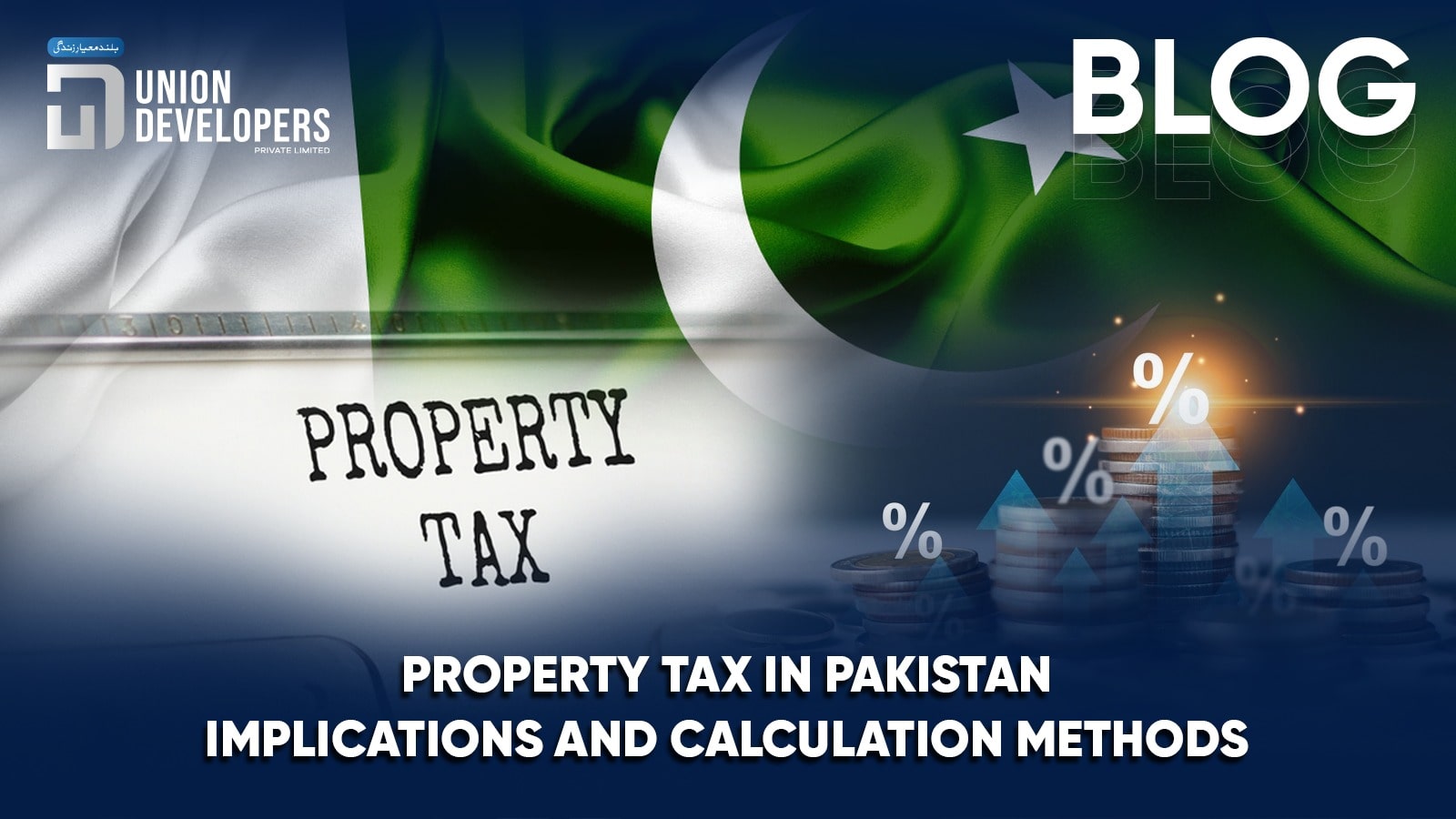The authority and administration of Property Tax in Pakistan is a complex and multifaceted task, it has a vital role in local government revenue generation and urban development. Understanding the gradations of property taxation is important for property owners, policymakers and taxpayers. In this detailed guideline, we will develop the deep understanding about the Property Tax in Pakistan, from exploring its definition to calculation methods.
What is Property Tax in Pakistan? Its Overview & Understanding
Property tax is a fundamental aspect of fiscal policy globally, these are the charges imposed by government on the financial worth of real estate properties owned by individuals or entities. In Pakistan, property tax is basically managed and measured by FBR along with local government bodies, such as municipal corporations and district councils. The revenue generated from property tax contributes significantly to various public services and infrastructure projects.
Importance of Property Tax in Pakistan
Property tax serves various purposes in Pakistan’s socio-economic context.
Generating Revenue: Property taxes are the important source of revenue for local governments, helping to provide essential services to the people of the county such as education, health, infrastructure and development.
Progressive Taxation: By taxing property owners based on the value of their assets, property tax contributes to wealth redistribution, ensuring that those who own valuable properties contribute proportionately to public services.
Community Development: Property taxes play an important role in urban development and planning, revenue collected from property taxes can be used for infrastructure development projects, public transportation for people to commute easily and add beautification to make fancier and more appealing.
Finance Management: Property tax policy promotes fiscal discipline in local governments, encouraging resource efficiency and practical budgeting.
Also Read: Capital Gains Tax on Property in Pakistan
Estimating Property Tax in Pakistan
There are many steps and factors to consider in calculating property tax in Pakistan:
Consideration of Property Values: Local authorities evaluate the worth of properties within their jurisdiction to regulate taxable values.
Tax Assessment: When the taxable value of the property is measured, the taxable amount is multiplied to calculate the annual property tax. These taxes can vary, depending on the type, size and location of the property.
Modifications & Exclusions: Adjustments and Exemptions from property taxes are based on local laws and regulatory bodies. These changes may include acceleration in payments, exclusion of certain categories of property owners like senior citizens, physically and mentally disabled people, and it also varies about the type of property about the purpose of its usage like charitable or the welfare of the people.
Payment Schedule: Property taxes are generally paid annually, even though the precise payment schedule may range relying on local authorities’ policies, property proprietors are chargeable for filing their taxes with the applicable local authority at a given time period to avoid penalty or legal repercussions.
How to Calculate Property Tax in Pakistan?
The person owning real estate in Pakistan will be taxed. It’s worth noting that property tax rules and regulations can alter after sometime, so it is always good to check with FBR, local authorities like PRA or professional tax consultant to get the updated information, while calculating property tax in Pakistan.
Key Factors to Know
Real estate proprietors in the Pakistan should thought about the significant factors pertaining to levies upon their holdings regarding to property tax.
Learning About Local Rules: Homeowners ought to learn the local tax laws, regulations and evaluation methods related to property. This helps in ensuring obedience and avoiding potential disagreements or penalties.
Keeping Precise Records: It’s crucial to hold maintained records of property ownership, trades, tax evaluations and payments for successful tax management and obedience.
Interacting with Local Authorities: Developing a positive rapport with the local tax authorities can simplify communication, resolve confusions or worries and smoothen the tax evaluation and payment procedure.
Demanding Expert Guidance: Homeowners could potentially gain by seeking advice from tax experts or consultants aware of property tax laws and rules in Pakistan. This could assist them to enhance their tax planning techniques.
Also Read: Real Estate Business in Pakistan
Concerns and Possibilities
Property tax management in Pakistan plays an important role in local government financing and urban growth, but it also faces numerous obstacles, including:
Tax Avoidance and Noncompliance: Property owners evading taxes and not following rules can create major hurdles for property tax administration. Revenue gets depleted and the system’s efficiency suffers.
Data Clarity and Transparency: Ensuring property valuation and assessment processes are transparent and should be precise is vital element. It should maintain the fairness and integrity of the property tax management.
Capacity Enhancement: Boosting local government bodies’ abilities is key. This involves training tax officials and investing in technology and infrastructure. It can bolster property tax administration’s proficiency.
Public Perception and Participation: Public understanding and involvement regarding property taxes has a great importance. This cultivates a sense of responsibility among property holders and local groups. Engaging citizens are more likely to comply with tax requirements and encouraging participants promote accountability from all sides.
Conclusion
Property taxes are not an easy feat in Pakistan. It takes a lot of planning, coordination and teamwork. By grasping the basics, how it is calculated, what it affects and the hurdles it has. Property owners, leaders and local officials can create a fair efficient system. This system could boost development across the nation. With ongoing improvements, training and cooperation. Property taxes could fuel local governments, urban growth and fair wealth distribution. If done rightly property taxes provide humongous funding source for Pakistan’s progress.





